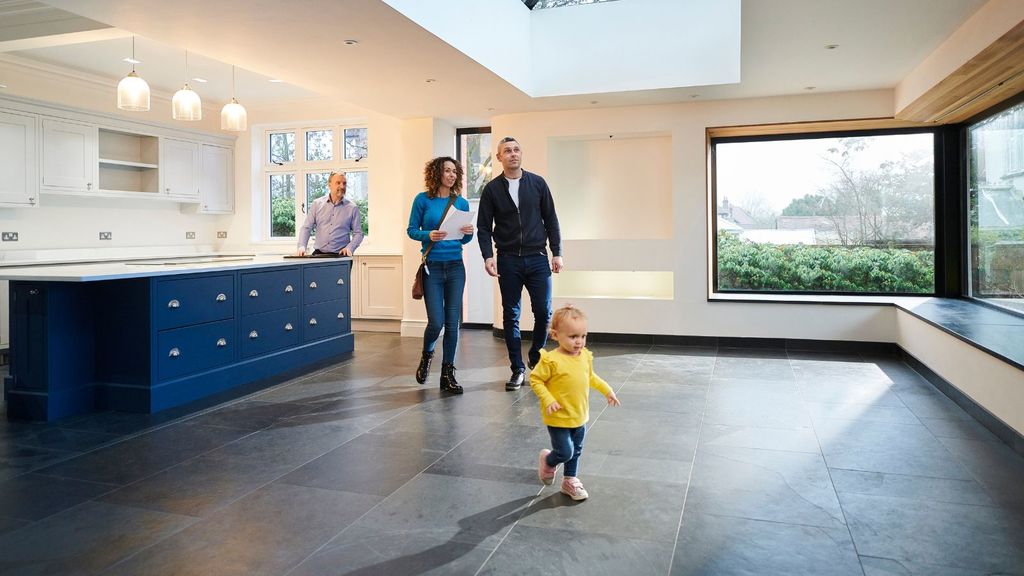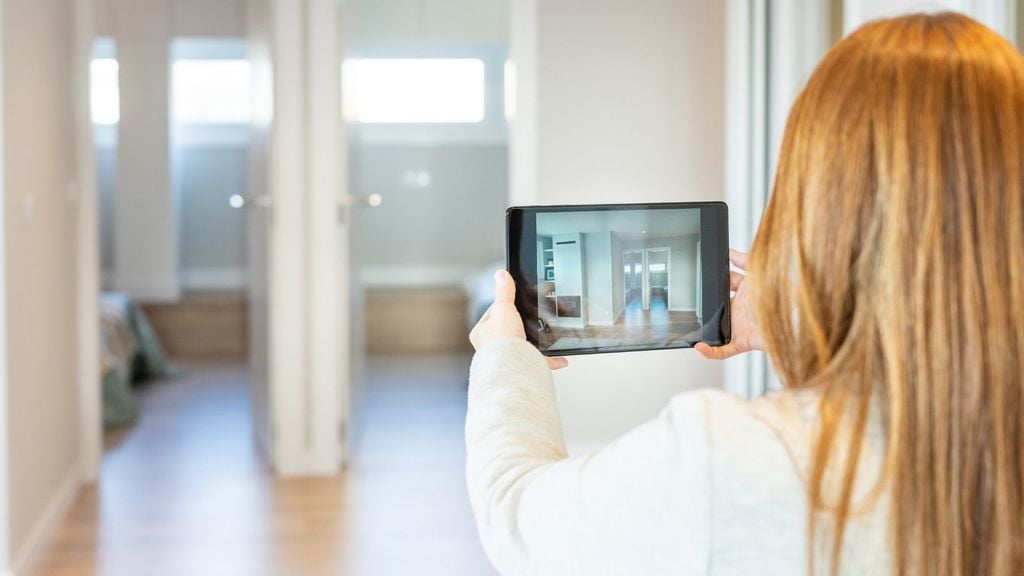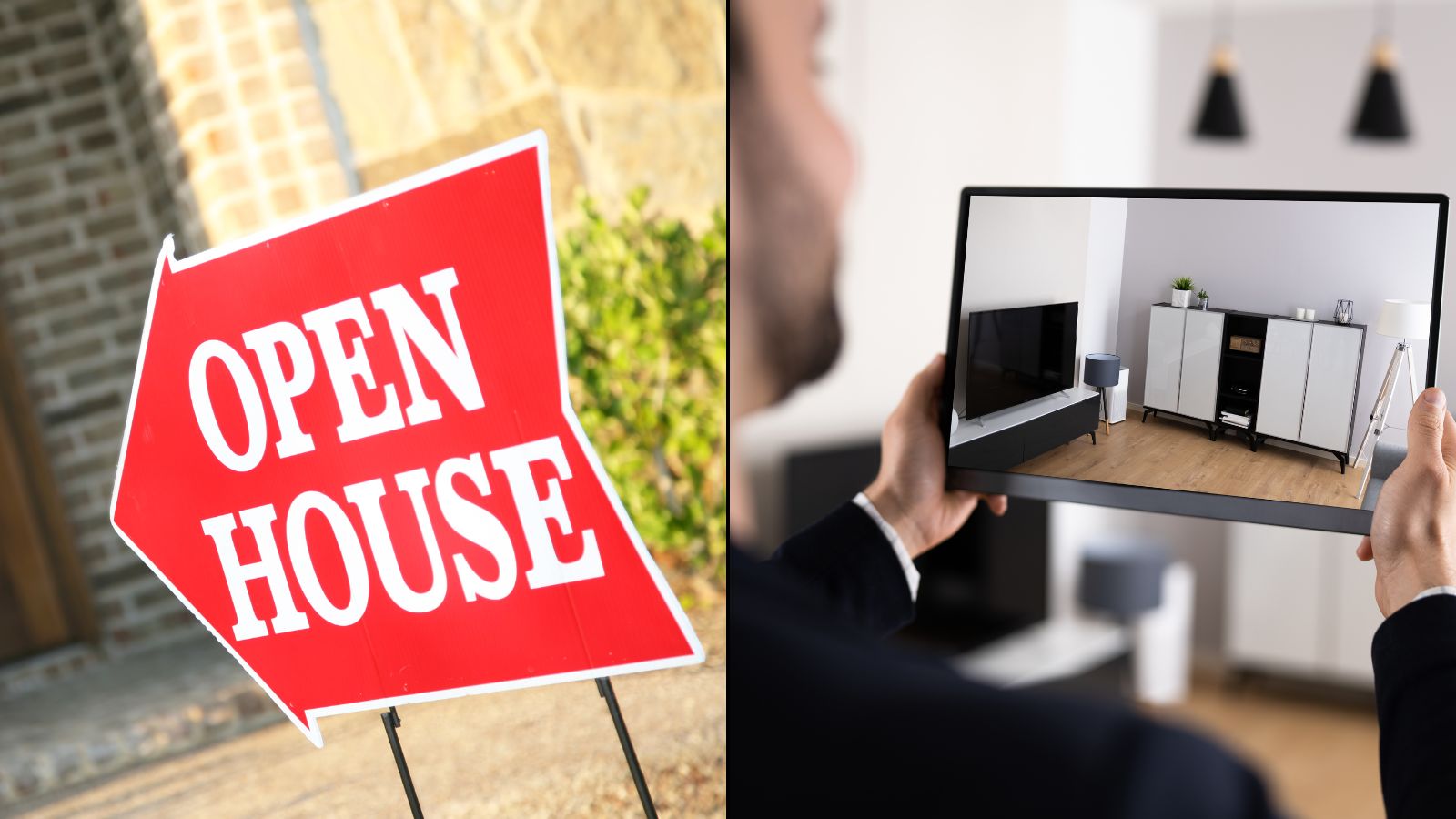Summary
This is what you came for. Here’s a basic summary of the details you’ll find in this article:
- What is an Open House?: A traditional, in-person event where buyers can physically walk through a home for sale. Great for building emotional connections but requires time and effort to stage.
- What is a Virtual Tour?: A digital experience that allows buyers to explore a home remotely using 3D tools. Ideal for out-of-town buyers and provides 24/7 access but lacks the personal touch of in-person tours.
- Key Differences
- Open House: In-person, detailed inspection of the home, best for local buyers.
- Virtual Tour: Convenient, remote access, ideal for a wider, global audience.
- Benefits of Hosting Both: Combines the best of both worlds: attract local buyers with open houses and reach a broader audience with virtual tours.
- Which Option is Best for You?: Consider your market, property type, and target audience. For a fast-moving market, virtual tours can speed up offers; for unique or luxury properties, open houses offer a personal touch.
If you want more details, check out the full article below.
Real estate agents have two primary tools to showcase properties: open houses and virtual tours. Both methods offer unique advantages and cater to different types of buyers. But choosing between them depends on factors like property type, location, and market trends.
Open houses have long been the traditional way of bringing potential buyers into the home, allowing them to experience it firsthand. Meanwhile, virtual tours have surged in popularity, providing a convenient way for buyers to view homes remotely.
We’ll break down the key differences between open houses and virtual tours to help you determine which approach suits your needs best.
What is an Open House?
An open house is a traditional real estate event where potential buyers can visit a home for sale, walk through it at their own pace, and ask questions of the listing agent. It allows buyers to see the property in person, assess its condition, and get a feel for the layout.
Open houses are often used to generate interest from a wide pool of buyers.

They create a low-pressure environment for people to explore the home without scheduling individual showings.
Open House Benefits for Homebuyers
- Experience the home’s ambiance: Buyers can physically walk through the home, getting a true sense of its layout, lighting, and atmosphere.
- Evaluate size and structure: An open house allows potential buyers to inspect the property’s size, layout, and physical condition firsthand.
- Meet neighbors and community members: Buyers might interact with neighbors or observe the neighborhood during the open house, helping them assess the community.
- Increase buyer confidence: Many buyers feel more comfortable making an offer after they’ve personally toured the property.
- Limitations: Open houses require significant time and effort for staging and scheduling, and they rely on attracting a local audience who can attend in person.
What is a Virtual Tour?
A virtual tour allows potential buyers to view a home remotely, using digital tools such as 3D walkthroughs, videos, or panoramic images. These tours enable buyers to explore the property from the comfort of their own home. They provide flexibility and convenience, especially for out-of-town or busy buyers.
Virtual tours gained popularity during the pandemic. They have since remained a valuable tool for real estate agents.

Virtual Tour Benefits for Homebuyers
- Accessibility: Virtual tours allow buyers to view properties from anywhere in the world, removing geographical limitations.
- Reach a global audience: Virtual tours can attract potential buyers who are not local, expanding the market beyond the immediate area.
- Faster decisions: Buyers can make quicker decisions or place offers without the need for an in-person visit, speeding up the buying process.
- Convenient for busy buyers: Virtual tours provide flexibility for those who cannot attend an open house or schedule a private tour.
- Downside: Virtual tours may not capture subtle details, such as the neighborhood’s vibe or small structural flaws, which in-person visits can reveal.
Open House vs Virtual Tour: Key Differences
There are several important differences to consider when deciding between an open house and a virtual tour.
In-Person Experience vs. Convenience
An open house allows potential buyers to physically experience the property. It gives them the chance to inspect everything from the layout to the neighborhood.
In contrast, a virtual tour offers buyers the convenience of exploring the home from anywhere at any time.
An open house can help build an emotional connection to the property. While virtual tours allow buyers to view more homes in a shorter period, which can speed up the decision-making process.
Target Audience
Open houses are ideal for local buyers who want to walk through the property before making any decisions.
Virtual tours cater to both local and remote buyers, especially those moving from out of town or internationally. They can broaden the reach of your listing beyond the local market.
Buyer Engagement
Open houses offer immediate, face-to-face interaction with buyers. This option can provide valuable feedback and foster connections.
Virtual tours rely on technology to simulate the home experience, which might lack the personal touch but offers flexibility in viewing.
Benefits of Hosting Both Open Houses and Virtual Tours
By combining both strategies, real estate agents can maximize the visibility of a property and appeal to a wider range of buyers.
Maximizing Reach
Hosting both an open house and a virtual tour ensures your property reaches buyers who prefer the convenience of virtual options as well as those who want a physical walk-through.
This approach is particularly effective in competitive markets, where casting a wider net can lead to quicker offers.
Flexibility for Buyers
Offering both options gives buyers the flexibility to engage with the property in a way that suits their needs.

Busy professionals or out-of-state buyers may prefer virtual tours. While serious local buyers may attend the open house for a more detailed view.
Increased Buyer Confidence
Some buyers may feel hesitant to make an offer based solely on a virtual tour. Offering an open house can build confidence for those who want to inspect the home in person before committing.
On the other hand, virtual tours can create interest and help buyers decide if the property is worth visiting.
Which Option is Best for You?
Deciding between an open house and a virtual tour depends on several factors including your property type, market, and target audience.
For High-Demand Markets
If you’re selling in a competitive, fast-moving market, virtual tours can help buyers make quicker decisions. It allows them to “visit” the property remotely and potentially place offers faster.
Virtual tours are especially useful for out-of-town buyers or when you’re working with tight deadlines.
For Niche or Luxury Properties
In situations where the home has unique or luxury features that buyers want to experience in person, an open house may be the better choice.

Buyers of high-end homes often prefer seeing the property’s details up close before making an offer.
For Both Local and Remote Buyers
Combining both options can appeal to a broader audience. Virtual tours attract remote buyers, while open houses give local buyers a chance to see the property firsthand. This helps you cater to both groups effectively.
Ultimately, the best approach may be to incorporate both strategies.
Use virtual tours to generate interest and open houses to build on that excitement with in-person interactions.
Maximize Your Real Estate Success with the Right Strategy
Choosing between an open house and a virtual tour depends on your specific needs, property type, and target audience. Both strategies have their advantages, and in many cases, combining them can lead to faster sales and a broader pool of potential buyers. Be flexible with these options to stay competitive in today’s dynamic market.
At SPACE, we provide our agents with the tools and support needed to succeed, including strategies for both open houses and virtual tours.
Want to elevate your real estate career? Get in touch with us to join a team that understands modern marketing.



